Open Letter to the All India Muslim Personal Law Board: North Indian Hegemony: An Unforgivable Insult to Karnataka’s Muslims
Short Summary of the Subject
The All India Muslim Personal Law Board (AIMPLB) faces severe criticism for its North Indian-dominated leadership, exclusion of Kannadiga members, and mismanagement of the Human Chain Against Waqf Act protest in Karnataka. The Board’s failure to secure police permissions and reliance on last-minute interventions by independent scholars highlight its incompetence and disconnect from grassroots realities. Community leaders have condemned the AIMPLB’s lack of planning, regional bias, and disregard for legal procedures, demanding urgent reforms.
“AIMPLB’s Leadership Failure: Protests Without Permission, Trust Without Accountability”
آل انڈیا مسلم پرسنل لاء بورڈ کے نام کھلا خط – جوابدہی، نمائندگی اور مؤثر قیادت کا مطالبہ
Introduction: A Crisis of Leadership and Representation
The All India Muslim Personal Law Board (AIMPLB), a body entrusted with safeguarding the interests of Indian Muslims, stands at a crossroads. Recent events have exposed glaring deficiencies in its leadership, planning, and—most critically—its commitment to equitable regional representation. The Board’s failure to include even a single Kannadiga in its ranks, coupled with its haphazard organization of the Human Chain Against Waqf Act protest in Karnataka, raises serious questions about its credibility and effectiveness.
This open letter seeks to hold the AIMPLB accountable for its institutional neglect, its North Indian-dominated hierarchy, and its reckless disregard for legal and procedural norms—failures that have left Karnataka’s Muslim community disillusioned and disenfranchised.
North Indian Hegemony: The Systematic Exclusion of Kannadigas
A Board Without Karnataka’s Voice
The AIMPLB’s composition reveals an unsettling truth: despite Karnataka’s significant Muslim population, not a single Kannadiga holds a position in the Board. Instead, the state’s representation is limited to two Bihar’s migrants—Mufti Iftekhar Qasmi and Mujahid Jameel—neither of whom possesses a deep understanding of Karnataka’s socio-legal landscape nor are they competent enough to address the issues here.
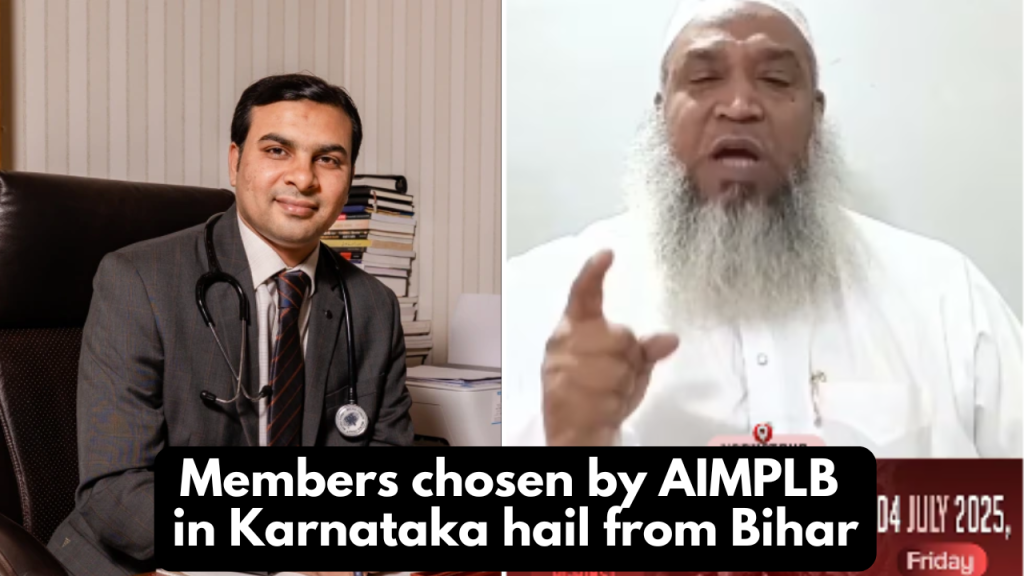
This exclusion is not accidental but symptomatic of a deliberate North Indian hegemony within the AIMPLB. The Board’s reluctance to incorporate local scholars and intellectuals—despite their prominence—raises a fundamental question: Is the AIMPLB a national body or a North Indian fiefdom?
A Betrayal of Trust: The Case of Moulana Zain ul Aabideen
The insult to Karnataka’s Muslim leadership was compounded when Moulana Zain ul Aabideen, a respected cleric, was abruptly dropped from the Board’s membership list in November 2024—after his name had already been announced publicly. He was replaced by Mujahid Jameel, a Bihari with no substantial grassroots connection to Karnataka.
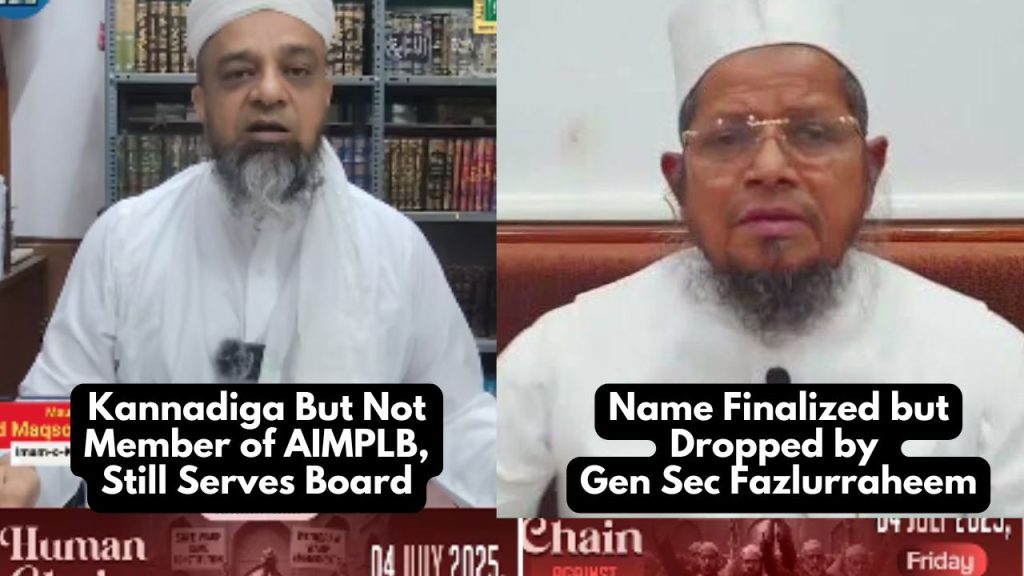
-
Was this decision made in accordance with the AIMPLB’s bylaws, or was it a personal maneuver by General Secretary Fazlur Raheem Mujaddidi?
-
Does the Board prioritize regional representation, or are appointments dictated by personal alliances?
This episode is not just an oversight—it is a blatant insult to Karnataka’s Muslim leadership and a betrayal of the Board’s own principles of inclusivity.
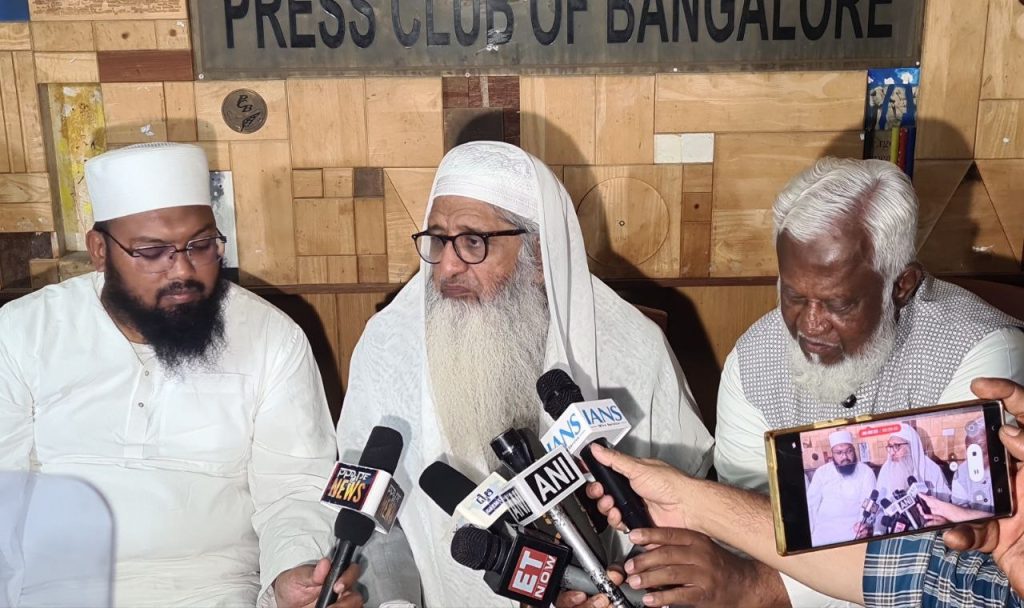
Human Chain Protest: A Display of Reckless Leadership
A Call Without Preparation
The AIMPLB’s Karnataka leadership enthusiastically promoted the Human Chain Against Waqf Act protest, urging mosques to organize demonstrations in front of masjids. However, in a staggering display of negligence, no prior permissions were sought from law enforcement.
When Bengaluru police issued notices citing a Karnataka High Court order (WP No. 5781/2021), which restricts protests to designated areas like Freedom Park, mosque committees were left scrambling. The Board’s failure to anticipate legal hurdles forced local leaders into last-minute negotiations with authorities—a situation that could have been avoided with basic due diligence.
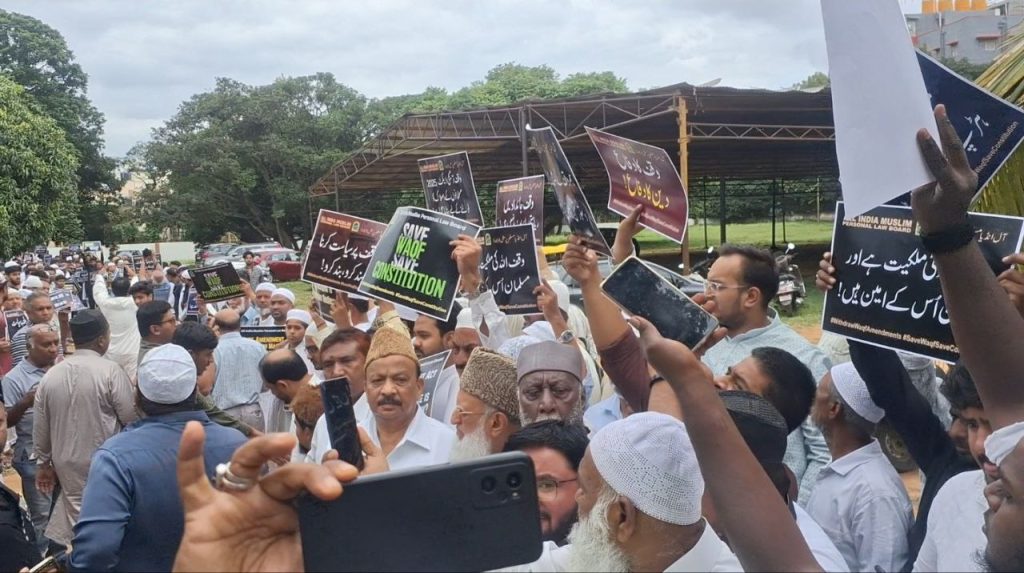
A Last-Minute Rescue by an Outsider
Remarkably, it was Moulana Maqsood Imran—a scholar with no official AIMPLB affiliation—who stepped in to mitigate the crisis. His timely intervention, including negotiations with police officials and public appeals to comply with court orders, prevented potential legal repercussions for mosque committees.
-
Why was the AIMPLB’s leadership absent in this critical moment?
-
Why does an independent scholar have to shoulder responsibilities that rightfully belong to the Board?
This fiasco underscores the ineptitude and detachment of the AIMPLB’s Karnataka leadership.
Community Backlash: Condemnation from Grassroots Leaders
“The AIMPLB Has No Mechanism”
Samiullah Khan, President of Masjid-e-Taha Management Committee and head of Mohammadeeyara Kannada Vedike, minced no words in his criticism:
“We don’t even know who the AIMPLB’s point of contact in Karnataka is. They issue directives without consultation, ignoring lawyers, activists, and local leaders. This is not how a representative body should function.”
His sentiments were echoed by other community elders, who labeled the Board’s actions as “unplanned, negligent, and disrespectful” to Karnataka’s Muslims.
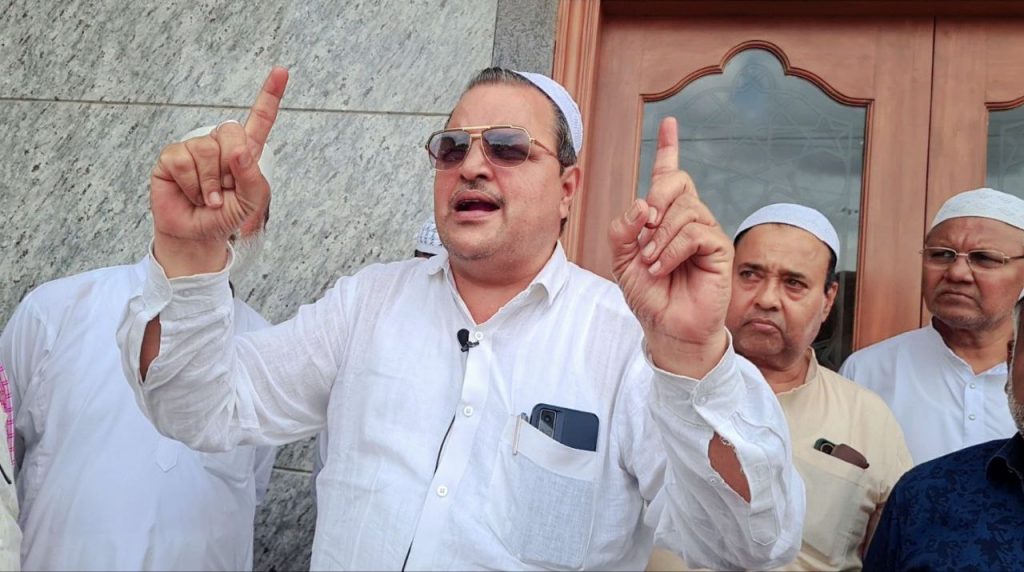
Cheap Publicity Over Substance
The AIMPLB’s social media group promoting the Human Chain protest—complete with impassioned video appeals—revealed a disturbing trend: a hunger for visibility over substantive action.
-
Why were permissions not secured before mobilizing the community for Human Chain?
-
Was this protest about genuine activism or merely a performative spectacle?
The Board’s lack of foresight not only endangered mosque committees but also exposed its disconnect from ground realities.

Conclusion: A Demand for Reform
The AIMPLB cannot afford to function as an unelected, unaccountable oligarchy. Karnataka’s Muslims deserve representation, transparency, and competent leadership.
We Demand:
-
Immediate inclusion of Kannadiga scholars in the AIMPLB.
-
An internal inquiry into the arbitrary removal of Moulana Zain ul Aabideen and inclusion of Mujahid Jameel of Bihar.
-
A public apology for the mismanagement of the Human Chain protest (in Bengaluru).
-
Structural reforms to ensure consultation with local leaders before major decisions.
The Board must either reform or risk irrelevance. The time for hollow appeals is over—Karnataka’s Muslims deserve better.
Note:
This letter is published in the public interest, with inputs from AIMPLB members and community representatives. Its purpose is to initiate corrective action, not defamation. Accountability begins with transparency.
—Concerned Citizens & Muslim Leaders of Karnataka
Context & Background
-
The AIMPLB is a key body representing Indian Muslims on personal law matters.
-
Karnataka has no native Kannadiga members—only two Bihari representatives.
-
Moulana Zain ul Aabideen was dropped from the Board abruptly in 2024, raising suspicions of favoritism.
-
The Human Chain protest was poorly organized, leading to police warnings and chaos.
-
Moulana Maqsood Imran (unaffiliated with AIMPLB) had to intervene to prevent legal action against mosques.
-
Local leaders accuse the AIMPLB of negligence, lack of consultation, and cheap publicity stunts.
Key Quotes
-
Samiullah Khan (President, Masjid-e-Taha Management Committee):
“We don’t even know who the AIMPLB’s Karnataka contact is. They issue orders without consulting local leaders, resulting in trouble for Muslims—this is unacceptable.” -
Anonymous AIMPLB Member:
“The Board’s decisions are increasingly influenced by personal interests, not community welfare, as demonstrated by Mujaddidi.” -
Shahjahan, Local Mosque Committee Secretary:
“The AIMPLB’s call for protest was reckless. They didn’t even check if it was legally permissible!”
Q & A Section
Q: Why does Karnataka have no Kannadiga members in the AIMPLB?
A: The Board is dominated by North Indian leaders who have systematically excluded local voices, favoring outsiders with no deep ties to Karnataka’s issues.
Q: Was the Human Chain protest illegal?
A: Yes—the Karnataka High Court restricts protests to designated areas (like Freedom Park) in Bengaluru. The AIMPLB failed to secure permissions, risking legal action against mosques.
Q: Why was Moulana Zain ul Aabideen removed from the Board?
A: No official explanation was given. Many suspect internal politics and favoritism by General Secretary Fazlur Raheem Mujaddidi for his personal gains.
Q: Can the AIMPLB regain Karnataka’s trust?
A: Only if it includes Kannadiga leaders, consults local stakeholders, and stops reckless decision-making involving a few ulema who are limited to Sabeel ur Rashad.
Final Takeaway
The AIMPLB’s credibility is at stake—its exclusionary practices, poor planning, and disregard for Karnataka’s Muslims demand immediate corrective action. Without structural reforms, transparency, and regional inclusion, the Board risks becoming irrelevant to the very community it claims to represent.
#TimeForChange #AIMPLBMustAnswer #AIMPLBExposed #HumanChainFailure #StopNorthIndianHegemony
![]()

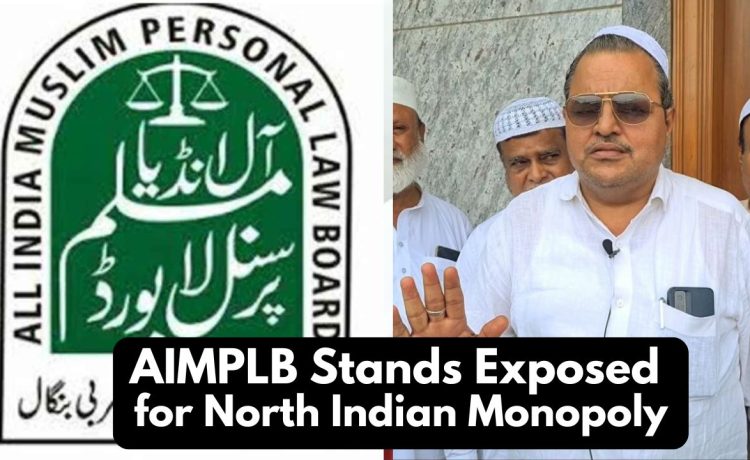

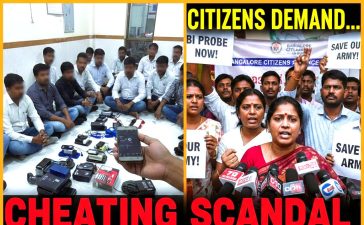
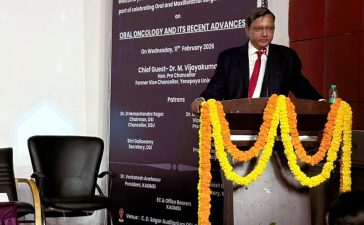







For your kind information and knowledge,
Karnataka has a total of 14 members representing the Karnataka Muslim community in the All India Muslim Personal Law Board (AIMPLB), and all of them are purely Kannadigas.
Although the ancestors of Mufti Ifteqar Ahmed Kasmi and Dr. Mujahid Jameel hail from Bihar, both of them were born and brought up in Bangalore, Karnataka. In fact, they speak Kannada more fluently than many others.
Juma ke Human Chain ko qasdan nakaam banane ki saazish hui hai—aur is saazish ka asal zimmedar Maqsoos Ghulam hai!
Sawal yeh uthta hai: siyasatdanon ke itne qareeb kaun hai? Kaun si shakhsiat hai jo minister ki godh mein baith kar Musalmanon ko dhoka de rahi hai?
Sab yaad rakhein—yeh wahi Maqsoos Ghulam hain jinhon ne mukhtalif meetings mein bar-bar kaha: “Permission ki zimmedari meri hai”. Magar jab waqt aaya to permission nahi liya! Uski wajah se masajid committees aur imaam sahabon ko notices mile, aur afra-tafri machi.
Is baat ke Meeting mein maujood sab afraad gawah hain!
Lekin in Maqsoos Ghulam Sahab ke ‘Human Chain’ ke ek din Pehle aaye YouTube ke videos main, goya aisa zaahir kiya gaya ke, Human Chain ke failure ke liye All India Muslim Personal Law Board zimmedar hai. Kya yeh Waqf Act ke Khilaf Uth-ti awaaz ko dabbane ki ghinauni saazish to nahi?
Aakhir yeh sub badkaari kis liye? Ohde ki Bhook Mitane ke liye?